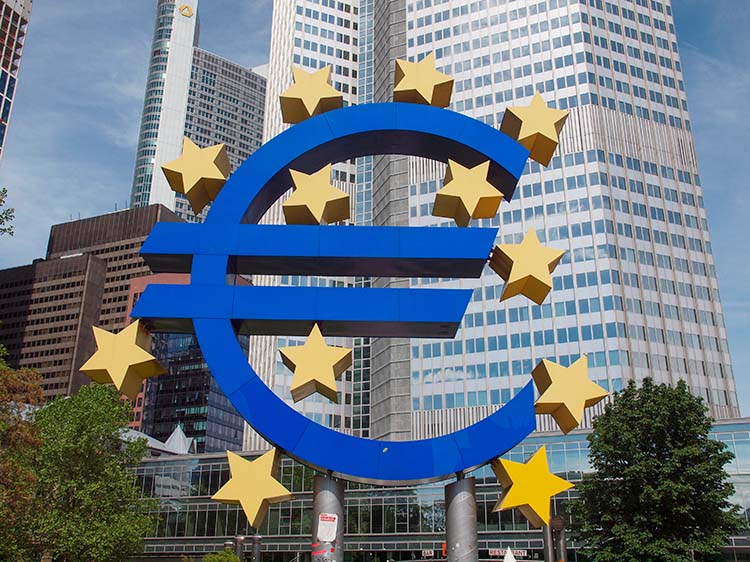

Central banks in the spotlight
The credibility of central banks is important because it contributes to price stability and reduces economic uncertainty, which helps the financial planning of households and businesses. The failure of central banks to control runaway inflation has led to an erosion of confidence in these state-owned financial institutions.
Central banks have to exercise a delicate balancing act to avoid making a monetary policy mistake. On the one hand, acting slowly in the face of rising prices can lead to inflation that is very difficult to control once it has taken hold. On the other hand, raising interest rates too much or too quickly can stifle the economy and cause many businesses to fail because of high debt levels.
The massive lowering of interest rates to zero to deal with the economic crisis triggered by the pandemic promoted a bull market in debt. The consequence is that we have reached record levels of private and, above all, public debt. A scenario that has set off alarm bells about the danger of stagflation as a result of high inflation combined with a slowing economic growth rate and high unemployment.
Long gone are the declarations of Christine Lagarde, president of the European Central Bank (ECB), when she predicted a natural collapse in inflation (4.9% in November 2021) as normality returned after the pandemic. These forecasts, which have not been fulfilled, explain the lack of measures to control inflation before it settled at today’s unsustainable levels.
Given this lack of control by the state entities that are supposed to ensure some financial stability, it is not surprising that stock markets and the public at large are losing confidence in the wisdom of central banks. Central banks risk being forced to do too much too late, creating stagflation in economies that cannot afford any more shocks.
Cryptocurrencies and decentralised finance
Controlling inflation is the biggest challenge facing central banks, as well as maintaining their independence. Even if central banks set interest rates without being subject to political interference, they can be affected by external pressures during a major economic crisis if they do not keep inflation under control.
However, a clash of cultures spurred by the popularity of cryptocurrencies may further shake institutions that are losing relevance in the face of the growing trend towards decentralised finance, known as DeFi. The arrival of cryptocurrencies in global markets does not represent, for now, a major macroeconomic threat to central banks, but the decentralisation of the economic model may represent the biggest paradigm shift for the operating models of these financial institutions.
DeFi’s role towards financial liberation of people and countries through open systems and outside the control of intermediaries and state actors will mean that the role of central bank money will have to change. They will have to adapt to a financial world that, following the same trend that is taking hold in geopolitics, has become multipolar.
11Onze is the fintech community of Catalonia. Open an account by downloading the super app El Canut on Android and Apple and join the revolution!
Leave a Reply
You must be logged in to post a comment.





Gràcies
Al llegir l’article,que per cert és molt bo i aclaridor,em.ve al cap allò que tan es deia en ple confinament
“Ens caldrà estar preparats per al nou ordre mundial”
Cert! Alícia, ja estem veient cap a on anem, i cap a on miren els que ho haurien de controlar. Gràcies com sempre per la teva opinió.
Molt bon article
Ens alegra que t’hagi agradat, Manel. Moltes gràcies pel teu comentari!!!
Cert, serà molt complicat tornar al benestar i a la bonança general que hi va haver desde el 2000 fins a principis de 2007 amb un sistema econòmic bassat en l’energia fòssil i que sembla que amb les accions de Rusia, Europa continua tossuda a continuar les polítiques basades en energia fòssil. Per tant malauradament continuarem en crisis mentre es continue amb un model bassat amb energia fòssil. La pregunta és: Rusia arrastrarà a la resta del món cap al model d’energia fòssil amb la seua política de la por? O Europa es mantindrà ferma cap a un model d’energia neta que ens permeti arribar al nivell de benestar i bonança de principis de segle XXI i tercer mil•leni?Personalment quan més tard desplegui Europa el seu nou model d’energia neta més risc tindrem de carregar-se el planeta i més trigarem a tornar als nivells alts de benestar i bonança econòmica.
Em fa l’efecte que no hi ha alternativa a l’energia neta. Tanmateix, interessos de les elits a banda, no és gens fàcil desplegar massivament aquestes energies, probablement perquè no s’hi ha invertit prou ni durant prou temps.
Gràcies per la teva reflexió, Jordi!
Fa la impressió que tot el que havia d’esdevenir en l’economia l’any 2000 amb el canvi de segle, per raons tecnològiques o simplement de ciencia ficció, comença a passar ara.
Això sembla, però penso que en aquell moment encara estava tot massa verd, pensa també que del 2000 fins a finals del 2006 o principis del 2007 va ser la millor època a escala econòmica que s’ha viscut mai, quasi tothom tenia feina i es guanyava molt millor la vida que no pas ara i la classe mitjana estava ben acomodada, no com ara, que estem ben fotuts… La globalització i l’afany de les grans empreses i dels que manen de voler controlar i de tenir cada cop més ens ha portat a on estem ara i malauradament serà molt complicat tornar al benestar i la bonança general que hi va haver en aquells temps… Moltes gràcies pel teu comentari, Mercè!!!